Table of content
SHARE THIS ARTICLE
Is this blog hitting the mark?
Contact Us
All companies need to use scheduled and targeted emails for marketing.They are used to create strategies for the growth of businesses.
They are helpful in many situations, such as promoting your product, asking for a meeting, and most importantly, connecting with users. Using emails is a great way to communicate effectively, which can help you get the responses you need and better understand your audience.
It’s a great solution for expanding and growth for businesses. So how do we implement this potential of email to add value to our product?There are many challenges associated with it.
The emails need to be sent at the right time and be in the right format. Who the emails are for is also important.
For example, If it's a holiday season and you run a tour company, your emails should show you're in the holiday spirit. But, you need to know your audience before sending emails.
If you're emailing during the holidays, make sure to mention it. We have a holiday package available and you can also leave a review about your last trip. Please avoid sending emails on weekdays or at the start of the work week, as they won't be useful.
Here is another example.
Let’s pretend that you are an insurance company selling retirement plans. Your product is targeted at an audience between the ages of 40-50 years. Now if you send the retirement plan for the age group 20-30 years, it may be of no use.
Your emails might end up getting marked as spam by users. You wouldn’t like that as an insurance company. Would you? The emails being sent must be only quality emails and to the correct audience.
If a software product or service company is sending emails, the Quality Assurance (QA) people make sure that those emails performing as expected.QA testers can help you avoid embarrassing mistakes and increase your conversions.
Ultimately, they help increase the return on investment or the ROI. So, how do these experts make sure that your emails are performing as expected?The task is not easy even for these experts.
Manual Testing is definitely an option, but it can be time-consuming, tedious, and prone to human errors. Test Automation comes into play here by making the task a bit less tedious and more accurate.
Let’s try to answer the above question by exploring test automation as a simple and effective solution for QA testing teams for better email scheduling and outreach for your business.
Table of Content
- What Role Does a QA Tester Play in Email Marketing?
- Test Automation for Email Scheduling and Outreach: Key Benefits
- Simplifying Test Automation: Best Practices
- Best Automation Tools to Simplify QA for Email Scheduling and Outreach
- QAble’s Best Practices for Successful Test Automation
- FAQs
What Role Does a QA Tester Play in Email Marketing?
Email marketing has been widely adopted by all businesses. There are so many tools available dedicated to conducting email marketing campaigns. Mailchimp, Twilio SendGrid, and Mailtrap are some of the key players in email marketing.
If we have tools already available, how do QA testers contribute towards making it better?Hmm! That’s an interesting question.The thing is that these email marketing tools still have to be customized as per the dynamic requirements.
There is no set of guidelines to follow while automating through these email tools.Once these third-party tools are included in your application, it is up to the QA testers to check for its efficiency.
QA teams add value to your product by making sure that the email marketing is increasing the ROI by integrating and testing in the right way.
Another example of the role of software testing companies is to test these email marketing tools themselves. If you have developed your own email tool, that needs to be tested for quality as well.
They need to conduct UI/UX testing, performance testing, and the list goes on. The foundational principles for QA experts are the same. What matters most is that the correct validations should be in place.
These validations should make sure that the software product is tested with expertise.
Test Automation for Email Marketing: Key Benefits
Before jumping into the core topic, let’s go through some of the major benefits of test automation for emails. Test automation can help increase the efficiency and performance of the sent emails. In short, it helps in the growth of a business in a strategic way.
Below are some of the key benefits:
- More Accuracy in Quality Assurance (QA): Testing through manual methods is an option. But it can be challenging. There are high chances of the introduction of human errors. The repetitive nature of many tasks makes it tedious. Test automation can perform these repetitive tasks with no errors. This minimizes the risk of errors. Also, there are no delays or broken links while communicating since automated tests can be scheduled through automated scripts.
- Builds and Improves Brand Reputation: All brands have their defined guidelines for how to conduct their businesses. This helps them not to deviate from their actual purpose. This helps in maintaining consistency. This enhances the brand's reputation. Additionally, it makes a particular brand easily recognizable among the competitors
- Better Insights: Test automation helps to analyze and monitor the business in a convenient way. The Key Performance Indicators or the KPI metrics can provide deeper insights into email performance. Things such as user engagement patterns and click-through rates help shape the strategies. These can be used to get better outcomes for email scheduling and outreach.
- Better Cost-effectiveness and Saves Valuable Time: Running businesses can be expensive. It's important to allocate the resources the proper way. Test automation can verify the functionality of templates for email, schedule algorithms for recipient lists, minimize the need for manual testing, reduce human errors, and help save valuable time.
- Increased Scalability: Growing business leads to increased efforts for email outreach. Automated Tests ensure scalability since they can handle large volumes of emails. This ensures that emails are sent properly and on time even with the growing user base. This enhances growth and expansion.
Also Read: Key Performance Indicators (KPIs) for Scalability Testing
- Enhanced Personalization: It's crucial for automated tests by your side while personalizing content or email according to respective target audiences. It enables businesses to test dynamic, curated, and customized content ensuring that each user or recipient gets the intended message. This promotes positivity and enhances customer satisfaction.
Simplifying Test Automation: Best Practices
There is no question regarding the obvious benefits of running automated tests for QA.In this section, we will review the best practices for such automated tests that will help boost the QA testing process and provide a clear path for better email marketing.
Leveraging test automation can seriously fuel and simplify the QA process, therefore, helping achieve maximum results for testing efforts.Below are some of the best practices for automated testing that can simplify QA for email marketing:

#1 - Test Script Automation
- Test scripts in an automated format are very helpful. This helps in the functional testing and validation of the emails.
- There are so many repetitive tasks in an ongoing email campaign. Some of them include regular email checks and proper and timely responses as per the subject. It’s important to validate these responses. Test automation helps to carry on these tasks accurately.
- Test Script Automation also helps to avoid human errors.
#2 - Automated Regression Testing
- Automation of regression tests makes sure that the workflow that is already implemented for emails is not affected. Many times there are updates or bug fixes in a workflow. Regression tests cover them to make sure that nothing breaks.
- Automated regression tests help to avoid unplanned scenarios or results. It makes sure that the logic applied to the existing emailing system is working correctly even with the new updates.
#3 - Automated API Testing
- API testing through automated scripts helps to simulate email interactions that are repetitive. This increases the productivity of QA teams.
- It helps to minimize the possible errors that could have been overlooked during manual testing.
- API testing through test automation helps to release products in an efficient manner. Since the scheduled emails have already been validated through API testing, the delays can be avoided during email campaigns.
Also read: Why does API Testing need to perform?
#4 - Automated Performance Testing
- Performance testing through test automation makes sure that the system can handle the email logic during heavy user traffic. This also makes sure the system is scalable enough for the future.
- There could be performance bottlenecks in a system for many reasons. This affects the effectiveness of the emails. Automated tests can keep an eye on Key Performance Indicators or KPIs. This helps in keeping the system optimized.
#5 - Error and Exception Handling
- Errors are bound to happen in software products. There could be many errors that could arise while scheduling emails such as wrong email IDs and network problems. These can be handled well with proper logic in automated test scripts.
- There may be limitations to sending or receiving email. Automated testing can be configured to handle these scenarios. The custom parameters in automated scripts can take care of such issues.
- Edge cases can also be handled by test automation. The boundaries of a test case can be defined for better test coverage.
#6 - CI/CD and Test Environment Management
- The QAOps methods can be utilized for integration testing. The email performance can be measured in a systematic manner. If required, the CI/CD pipelines help in modifying the email workflows with minimum downtimes.
- Automated tests help the QA test the email workflows in production-like environments. These testing environments can be easily configured and managed through CI/CD pipelines in real-time.
Also Read: Best Practices for QAOps
So, there we are with a comprehensive list of best practices for simplifying QA for email scheduling and outreach.
Best Automation Tools to Simplify QA for Email Marketing
Well, while we are on the topic of automation, using automation tools is indispensable for our purposes, that is simplifying QA for emails.
Let’s explore the most important and popular ones:
- Selenium: Selenium is a very popular automation testing tool. It is an open-source tool. Selenium automation testing is utilized by the QA experts to automate email interactions. It helps in comprehensively conducting tests. Email scheduling and outreach can be automated with the help of selenium.
- Postman: This is another popular tool to conduct automated API testing for emails. The service provider API can be integrated into Postman with minimum configurations. All the logic coming through the code can be tested well using it. This helps in validating the emails and handling errors and exceptions in an automated way.
- JMeter: It is primarily used to conduct performance testing of the scheduled emails. With regular performance tests using automated scripts, optimizations can be done to the email workflows. This also helps to test the system for scalability.
- Appium: It is also an open-source tool that is widely used. It is aimed towards automation testing of mobile apps. Appium automation testing enables cross-platform support and can be integrated with email clients on mobile devices.
Also Read: Advantages of Automated Mobile App Testing
- TestComplete: TestComplete is an automation tool for web and desktop apps. It is also cross-platform. It can be used for various tests using automation for email clients. These tests include UI testing, regression testing, and compatibility testing for various platforms.
QAble’s Best Practices for Successful Test Automation
Successful automation requires correct strategies that set you apart from others. As a leading automation testing company, QAble’s experts meticulously follow the foundational principles and apply essential strategies for success.
Below are the best practices that we follow for successful automated testing methods for better email scheduling and outreach.
- AI-Powered Testing- Leveraging artificial intelligence tools can do wonders. Analyzing subject lines, email content layouts, and potential issues becomes easier. Also, it saves a lot of time and enhances accuracy.
Also Read: Tips on Utilizing the Best Tools for AI Chatbot Testing
- Custom Test Scenarios- Consider different user segments, engagement levels, and personalization scenarios. Business needs are unique for different companies. Custom test cases take care of such scenarios.
- A/B Testing- It helps to decide the best one between two options of the same email. The elements in these options can be tested. The variant that is the most effective element can be included in the email. This helps in making the most out of testing efforts.
- Test Automation Frameworks- Automation frameworks provide an organized way to test an application. They also have reusable components. Other benefits include reusable scripts. This helps to increase the productivity of QA automation in a structured manner.
- Email Monitoring- The delivery of the emails should also be monitored. Things like email blacklists, SPF, and DKIM authentication are to be regularly checked. This helps to improve the effectiveness of the delivered emails.
So, make sure you employ these practices in your daily activities for email QA to get great results.
Discover More About QA Services
sales@qable.ioDelve deeper into the world of quality assurance (QA) services tailored to your industry needs. Have questions? We're here to listen and provide expert insights


Nishil Patel is the Co-founder of QAble, delivering advanced test automation solutions with a focus on quality and speed. He specializes in modern frameworks like Playwright, Selenium, and Appium, helping teams accelerate testing and ensure flawless application performance.
.svg)














.webp)
.webp)
.png)
.png)











.png)



.png)

.png)

.png)





.jpg)
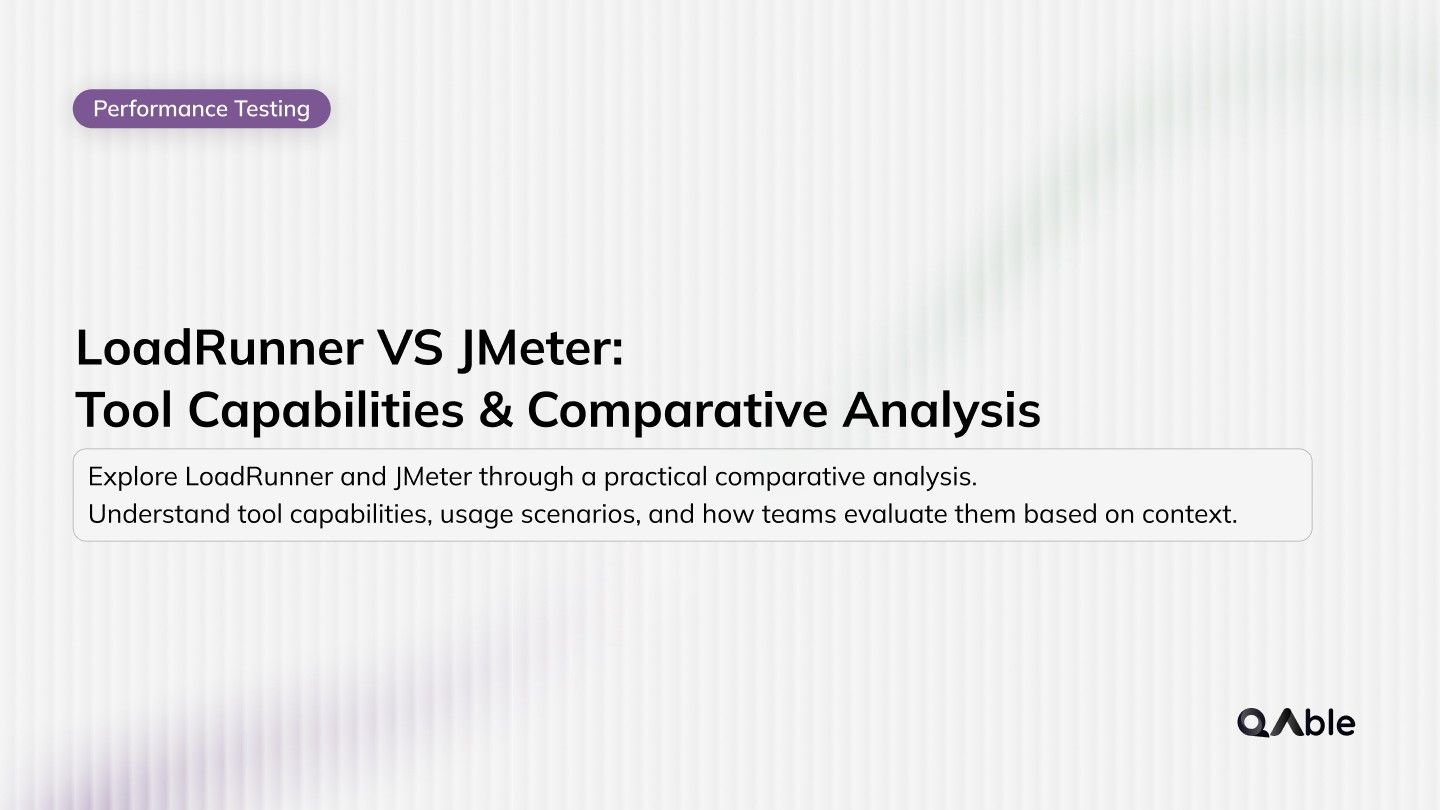
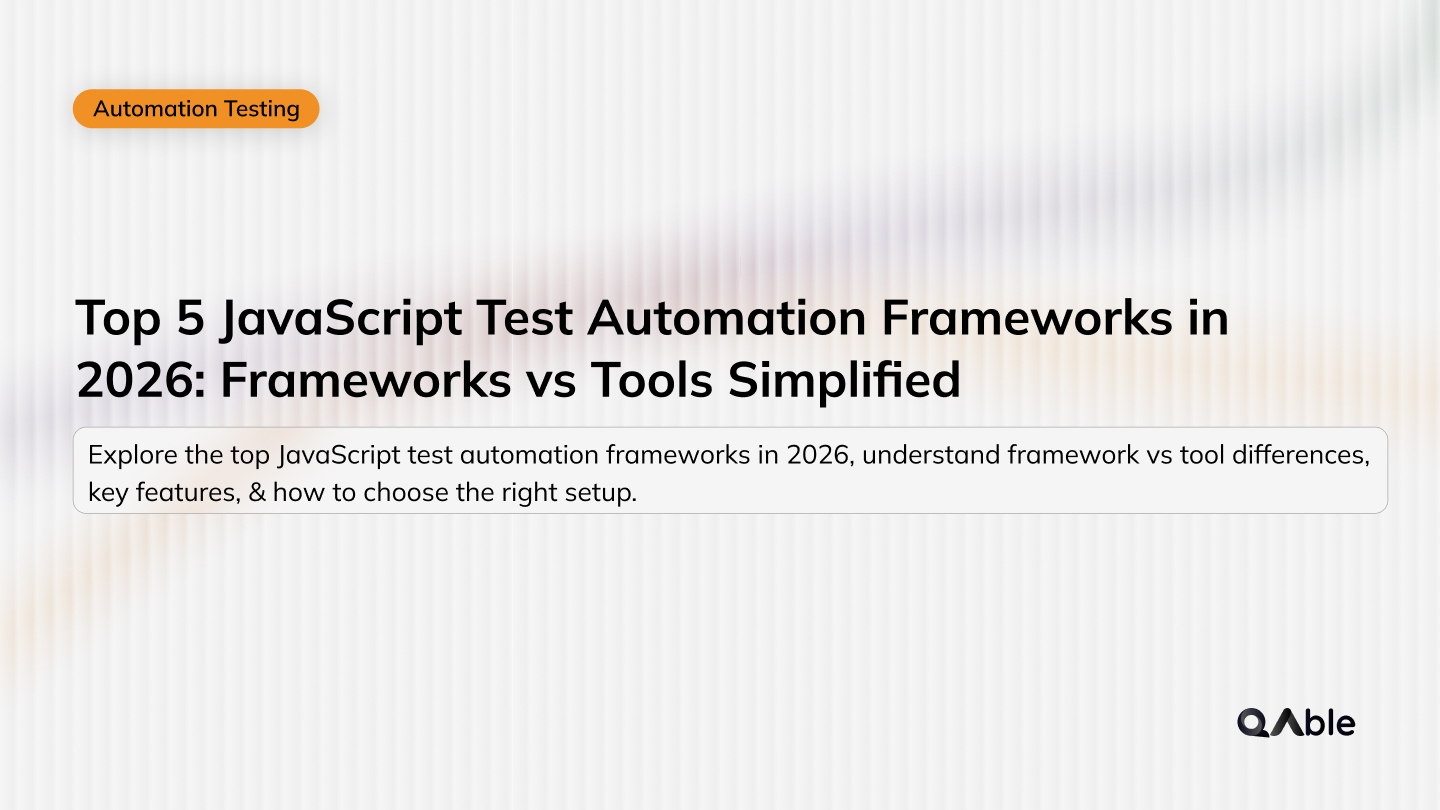

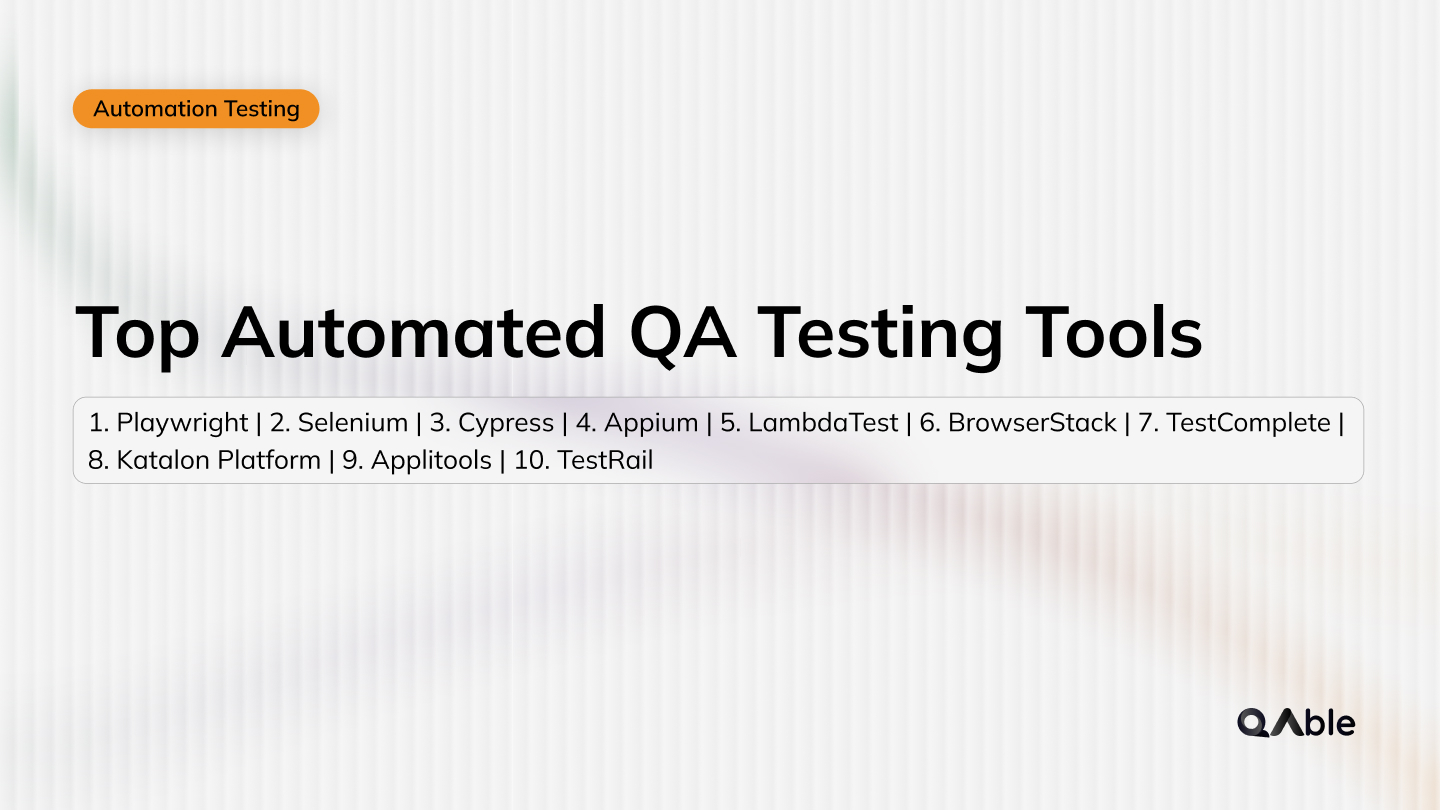




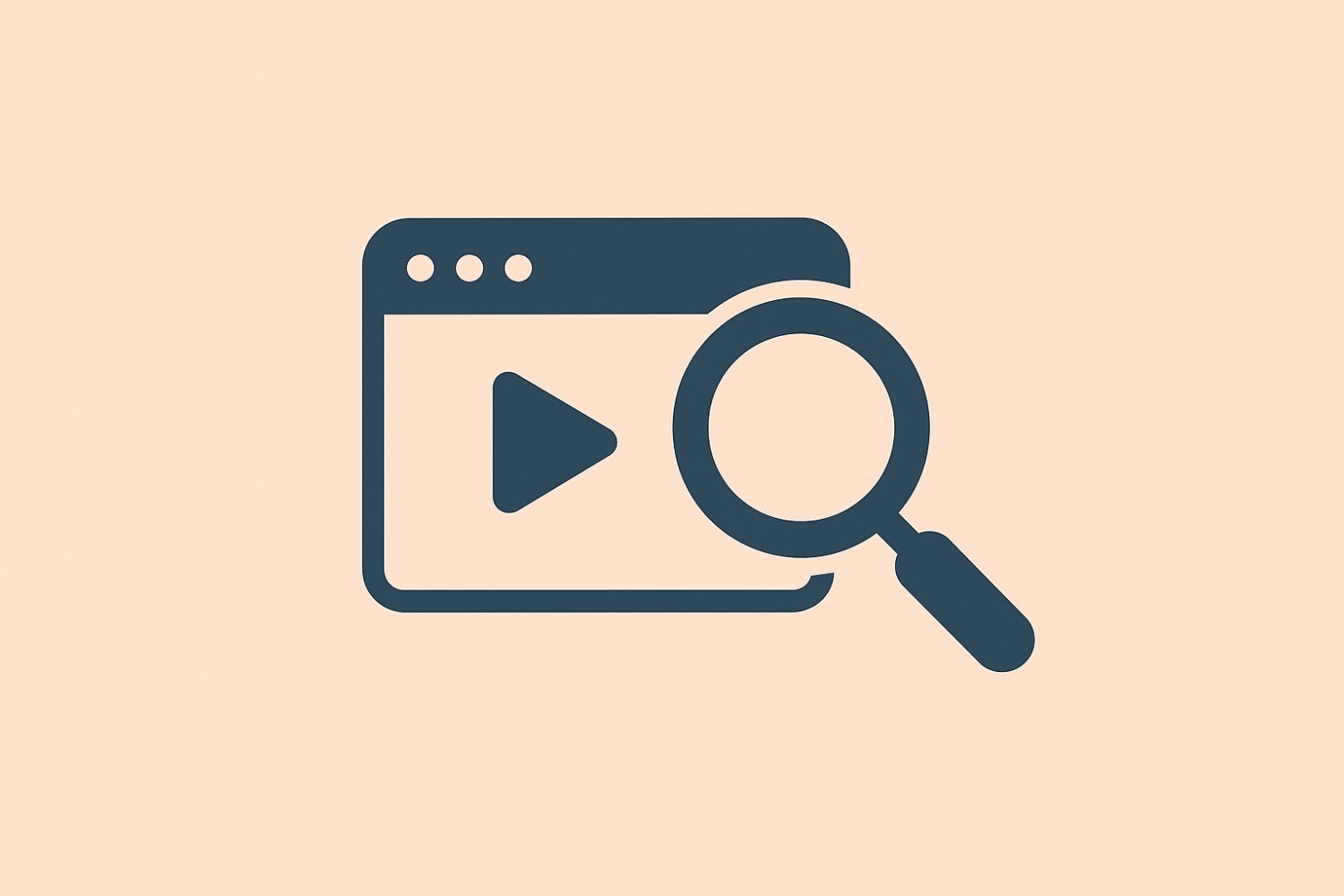
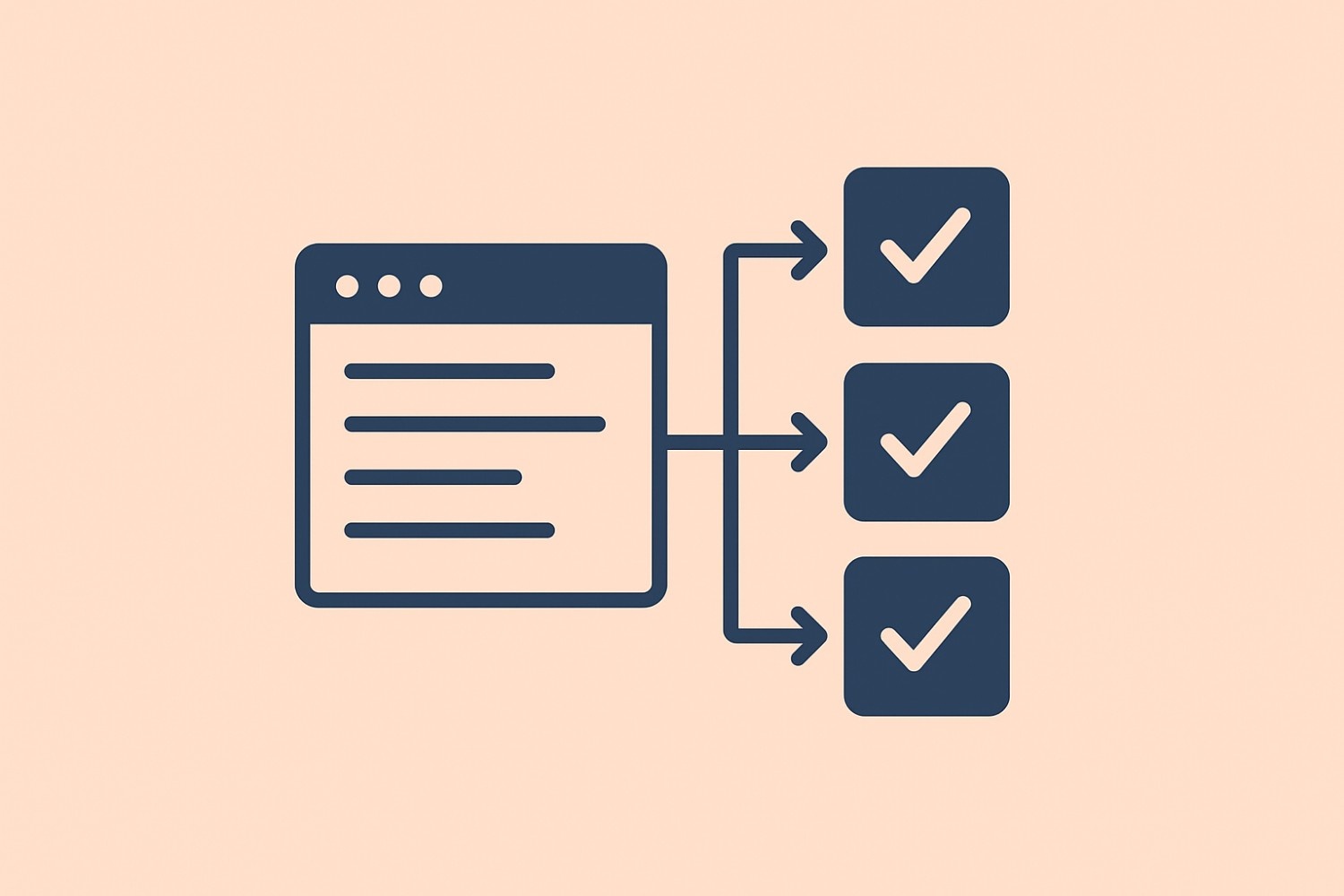





.webp)

